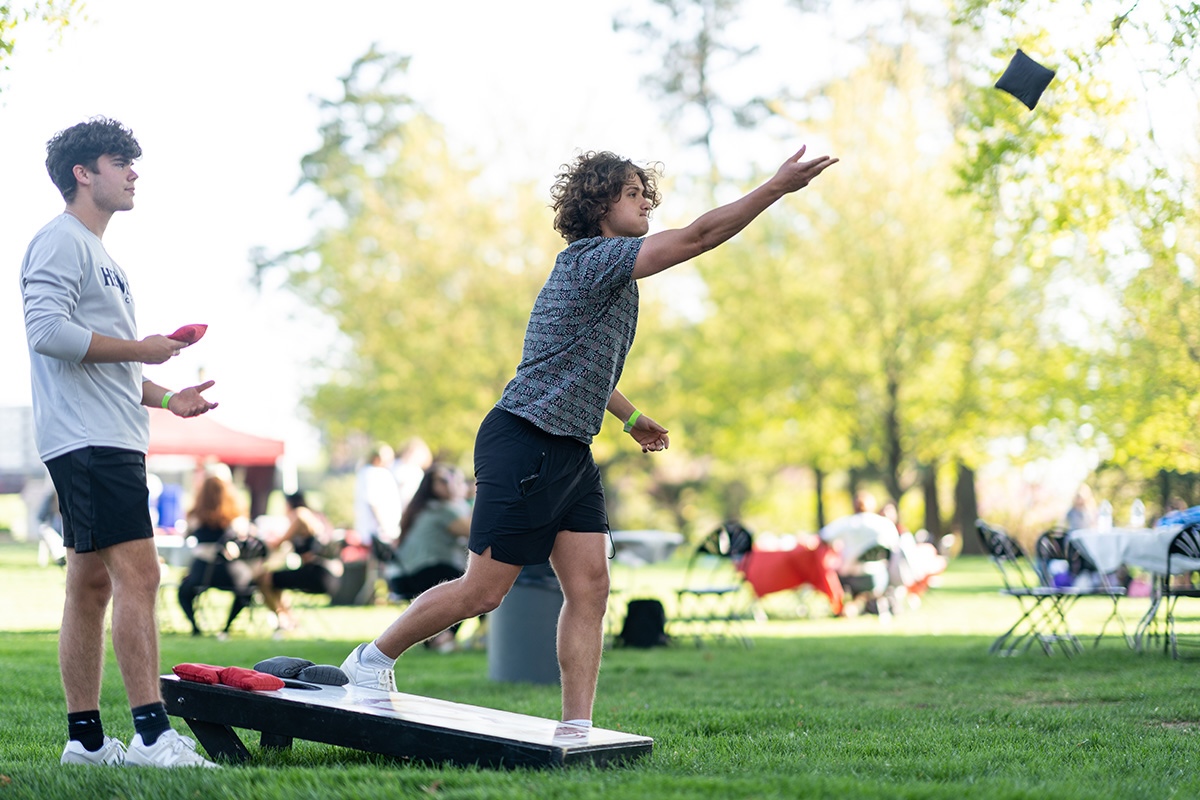Summer Health Safety Tips With Physician Assistant Studies’ Michael Huber

Summer offers opportunities for outdoor activities and fun, but it also increases the risk of dehydration, heat-related illnesses, and sun damage. Maintaining good health during hot weather requires proactive strategies for hydration, heat safety, and sun protection.

Michael Huber, MMS, PA-C, DFAAPA, an associate professor in the Physician Assistant program, shared several tips for the season to ensure everyone can stay safe and energized.
Hydration Strategies
Staying properly hydrated is essential, especially when active outdoors. The Centers for Disease Control and Prevention (CDC, 2021) recommends drinking water consistently throughout the day, even before feeling thirsty. Adults should be drinking anywhere between 11.5 (2.7 liters) and 15.5 (3.7 liters) cups of water per day. For physically active individuals, replenishing electrolytes through beverages like coconut water or sports drinks may be beneficial (Mayo Clinic, 2022). It’s also important to limit alcohol and caffeine intake, as these can contribute to dehydration (American Heart Association, 2023).
Recognizing and Responding to Heat Illness
Early signs of heat exhaustion include heavy sweating, fatigue, muscle cramps, dizziness, and nausea. The CDC (2021) advises moving an individual experiencing these symptoms to a cool, shaded area, providing water, and loosening clothing. If symptoms escalate to confusion, high body temperature, or loss of consciousness, heat stroke is likely, and emergency medical services (911) should be called immediately. Applying cool compresses and fanning the person can help lower their temperature while waiting for help.
Sun Safety Recommendations
The American Academy of Dermatology (AAD, 2023) recommends using broad-spectrum sunscreen with an SPF of 30 or higher, reapplying every two hours, or more frequently when swimming or sweating. Wearing protective clothing, wide-brimmed hats, and sunglasses also helps shield skin from harmful UV rays. Limiting sun exposure during peak hours, 10 a.m.–4 p.m., is another important strategy.
Foods That Help — and Hurt — During Summer
Certain foods, such as watermelon, cucumbers, oranges, and leafy greens, support hydration and cooling. These high-water-content options can help the body adapt to summer heat (Cleveland Clinic, 2022). In contrast, salty snacks, processed foods, and caffeine can promote dehydration and should be consumed in moderation during hot weather.
References
American Academy of Dermatology. (2023). How to select a sunscreen.
https://www.aad.org/public/everyday-care/sun-protection/sunscreen-patients/how-to-select-a-sunscreen
American Heart Association. (2023). Hydration and your heart.
https://www.heart.org/en/healthy-living/healthy-eating/eat-smart/water-and-your-health/hydration-and-your-heart
Centers for Disease Control and Prevention. (2021). Extreme heat: Know the signs.
https://www.cdc.gov/disasters/extremeheat/warning.html
Cleveland Clinic. (2022). Best foods to eat during a heatwave.
https://health.clevelandclinic.org/best-foods-to-eat-during-a-heatwave/
Mayo Clinic. (2022). Dehydration.
https://www.mayoclinic.org/diseases-conditions/dehydration/symptoms-causes/syc-20354086

